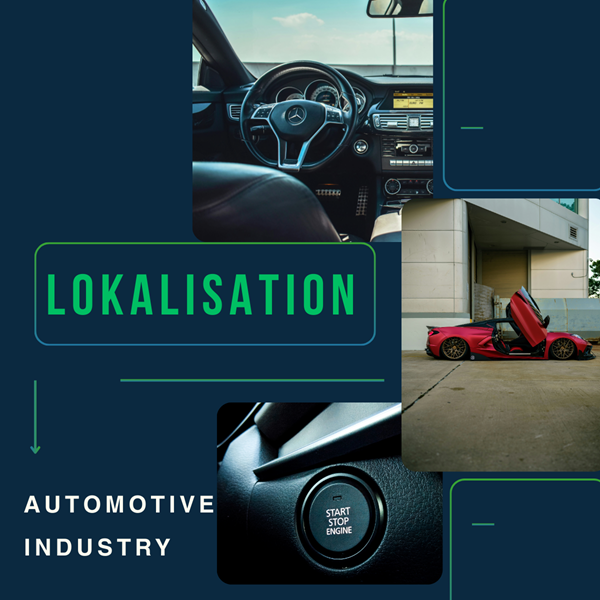08.04.2025
Have you ever thought about how much high-quality localisation can impact your overall impression of a car?
How we take it for granted until we come across those annoying little mistakes that drive us mad?
In the automotive industry, localisation is just as important as proper car design.
Why? Because in doing so, they can …
Boost sales
- When a car is tailored to the local market (language, units of measurement, and safety regulations, etc.), people are more likely to buy it. Nobody wants the hassle of a trip computer that shows fuel consumption in miles per gallon instead of litres per 100 km.
Avoid legal problems
- Every country has its own set of laws and standards. If a car maker correctly localises manuals, safety labels or software, it can avoid fines and, most importantly, a potential ban on sales.
Improve their reputation and increase customer satisfaction
- A simple “mathematical equation” holds true here.
Information which is clear, understandable and tailored to local customs = a more favourable impression among customers and their greater confidence in the brand.
Save on servicing costs
- Precise translations of technical documents mean that mechanics will understand the instruction manuals they are given and won’t make mistakes when performing repairs. This saves the car maker costs relating to claims and servicing.
Streamline production
- Correct localisation also helps in factories. If workers have clear instructions, this reduces the risk of errors during assembly.
Improve the user experience for the customer
- A localised voice assistant, correctly translated infotainment systems or well-formulated warning messages contribute to a more enjoyable and user-friendly driving experience.
Give themselves a competitive advantage
- Car makers which take localisation seriously are better able to establish themselves in new markets. People are more likely to go for a car that “speaks their language” than one which takes a lot of effort to get used to.
Simply put – when a car maker invests in high-quality localisation, it saves itself a lot of hassle, boosts profits, and improves customer relations. So it’s a win-win situation for everybody – the manufacturer, the customer, and the technicians.


